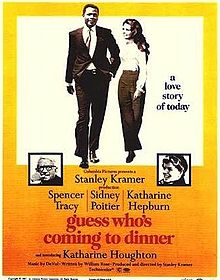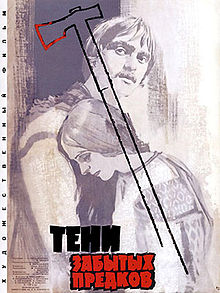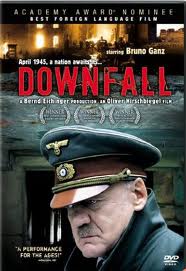 This movie is based on the memoirs of Traudl Junge, one of Hitler’s personal secretaries that lived with Hitler in the bunker of the Führer Headquarters in Berlin, Germany, who served Hitler until his suicide, typed Hitler’s suicide note, and witnessed Hitler’s death.
This movie is based on the memoirs of Traudl Junge, one of Hitler’s personal secretaries that lived with Hitler in the bunker of the Führer Headquarters in Berlin, Germany, who served Hitler until his suicide, typed Hitler’s suicide note, and witnessed Hitler’s death.
Since 1930, Hitler always used two secretaries, but due to an increase in workload, he hired a third secretary, Gerda Christian, in 1937. It is said that this woman was extremely beautiful. Since Christian took an extended vacation in order to marry Eckhard Christian, a member of the Armed Forces Command Staff and the lieutenant colonel of the Air Force, in 1942, Traudl Junge was hired to take Christian’s place. In this movie, a beautiful actress performs as Junge and it is depicted that Hitler likes her among the many applicants and hires her. One reason may be that she was from Munich, where the Nazis were formed and the headquarters for Nazi activity was located. Berlin was an area with strong sympathy for communism, as well as an area in which Nazis historically had difficulties in winning elections. After Christian returned from her honeymoon, Junge remained as Hitler’s secretary and became a loyal and close associate of Hitler’s.
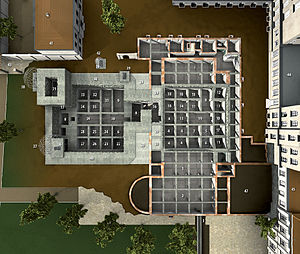 Adolf Hitler had an underground bunker built into the Führer Headquarters in 1935. Later in 1943, since the war situation had deteriorated considerably, he had a new Führerbunker with increased defensive function built, and connected the two underground bunkers with stairs. The underground bunker was built with concrete walls four meters thick to tolerate attack, and was partitioned into about 30 rooms. Hitler lived here starting from January 1945, in the final stage of World War II. Hitler and his mistress Eva Braun, Nazi #2 Goebbels and his family, the SS leaders, and their secretaries and chefs lived here. Amid the final days of warfare in the streets of Berlin, Hitler committed suicide here on April 30, 1945.
Adolf Hitler had an underground bunker built into the Führer Headquarters in 1935. Later in 1943, since the war situation had deteriorated considerably, he had a new Führerbunker with increased defensive function built, and connected the two underground bunkers with stairs. The underground bunker was built with concrete walls four meters thick to tolerate attack, and was partitioned into about 30 rooms. Hitler lived here starting from January 1945, in the final stage of World War II. Hitler and his mistress Eva Braun, Nazi #2 Goebbels and his family, the SS leaders, and their secretaries and chefs lived here. Amid the final days of warfare in the streets of Berlin, Hitler committed suicide here on April 30, 1945.
After Hitler’s death, Junge was arrested by the Allies during her escape, but it is said she was soon released without being interrogated deeply. Since then, she continuously claimed that she knew nothing, so one might expect there not to be any astonishing historical truth from her memoirs. Also, as the youngest secretary, one might think she does not know much political intelligence. Thus, one might expect a movie made from her point of view to be about Hitler being a kind boss while the commissioned officers that pampered Hitler’s favorite woman were wonderful uncles, and about her not wanting to give up the life in the safe underground bunker, where they drank wine, had delicious meals, and slept in late.
When Hitler gave the order for his four secretaries to leave due to the deterioration of the war situation, the two older secretaries escaped, but Junge and Christian said, “I share life and death with the Führer until the end,” and refused the order. Junge later stated, “I don’t know why I made such a decision,” but after all, for a young person without a real feel for death, I think it is 50% pure youthful indiscretion to think, “When the time comes, I’m not afraid to die,” and 50% youthful foolishness that the man, who until now had almighty power and had given her a comfortable environment to live in, could not be defeated. Instead of being thrown into the war in Berlin without any protector or friends, I think she felt safer being surrounded by people who (she thought) will protect her.
This movie is made from the point of view of a woman who didn’t know the truth about the Nazis or the lives of people who suffered outside, yet was nevertheless a young woman in possession of good instinct. Even though she behaves amicably to everyone as a secretary, she carefully observes who will betray and who will stay loyal to her boss Hitler. This movie is 40% from her point of view, and it depicts how people behave when faced with the danger of losing their lives after the fall of absolute authority. Since that is insufficient, another 30% depicts historically significant Nazi figures at the time, and since that is not quite enough, the lives of citizens suffering from war are also depicted. Therefore, this movie doesn’t have a single protagonist, and the viewpoint of the story shifts throughout the movie. Although Junge appears many times, she doesn’t play an important role in the story. Two-thirds of this movie is Hitler repeatedly shouting about his disappointment in his close associates, and it wouldn’t be this way if Hitler were the protagonist. The profoundness of this movie starts after the death of Hitler. It vividly depicts how people behaved immediately following Hitler losing his power. Some followed Hitler to death with suicide. Some ran away, and were arrested by the Allies and executed at a trial. Some who tried to escape were executed by their comrades as a traitor to the nation, while others executed citizens for being communists as a warning to the general public before the Soviet Army entered. Commissioned officers started openly smoking—something Hitler strictly prohibited—and some drank wine and got drunk. Those who attempted to escape ran toward the south part that was occupied by the American army; their greatest fear was to be arrested by the Soviet Army.
For someone like me who doesn’t know many details about Nazis, this movie is a treasure chest of information, but the most significant piece of information was that Hitler committed suicide in the end. This after all is not surprising, although some believe in urban legends about Hitler, analogous to the theory of Yoshitsune (a famous samurai) escaping death and becoming Genghis Khan. Some believe that someone sacrificed his own body for Hitler to be burned with gasoline in order to make the burned body impossible to identify while Hitler snuck away in a secret passage. People can’t believe such a self-preserving man would choose death.
However, this movie depicts that the reason Hitler wanted his body burned was not to fake his death, but because he did not want his body displayed publicly after his death (Hitler knew Mussolini was mercilessly executed by the partisan and was hung in public) and for his clothes to be displayed in a museum exhibit. Pride was most important to him. His biggest fear was to be shamefully on display. In the movie, some of his close associates recommend, “You should do an unconditional surrender for the sake of the nation before it is too late,” but he could never permit this because of the shame it would bring. Those who recommended this are nearly shot. Because his rejection of this idea was so strong, I wonder if some people who recommended this were actually executed. He had lost the idea of “citizens” or “for the nation.” In the movie, when an officer suggests, “We must protect the citizens, especially the women and children,” Hitler declares, “With this critical battle now in our territory, the concept of citizens does not exist.” He doesn’t have the sentiments of, “I accept whatever will happen to me; I only want to save the citizens,” or, “I accept the punishment for my mistakes, but don’t punish the people who obeyed my orders.” His mind was preoccupied with figuring out how he could die with honor.
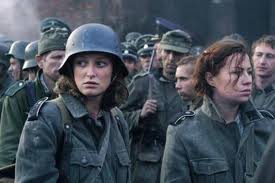 There certainly seem to be tunnels that he could have used to run away. SS Major Otto Günsche completes Hitler’s final command to have his dead body burned, and attempts to escape with SS Colonel Wilhelm Mohnke, Junge, and Christian through the underground tunnels, but they aren’t able to escape in the end. Christian gives up trying to escape and stays with Major Günsche and Colonel Mohnke. This movie does not depict when the Soviet Army arrested them, and the movie ends with a scene of Junge biking away and escaping to Munich.
There certainly seem to be tunnels that he could have used to run away. SS Major Otto Günsche completes Hitler’s final command to have his dead body burned, and attempts to escape with SS Colonel Wilhelm Mohnke, Junge, and Christian through the underground tunnels, but they aren’t able to escape in the end. Christian gives up trying to escape and stays with Major Günsche and Colonel Mohnke. This movie does not depict when the Soviet Army arrested them, and the movie ends with a scene of Junge biking away and escaping to Munich.
Christian is given only a small part in this movie, and there is almost zero information about her. After some hardships, Christian escaped to an area occupied by America, but Major Günsche and Colonel Mohnke were taken by the Soviet army, and they each served 10 years in labor camps in USSR and East Germany, respectively. It is said that Christian called Major Günsche a “lifetime friend.” She divorced her husband soon after the war, and was able to be reunited with Major Günsche 10 years later.
日本語→

